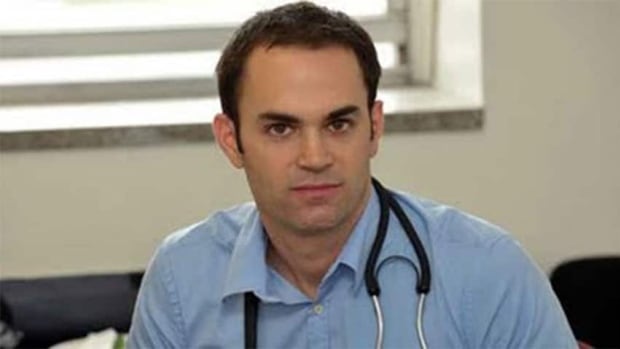Quebec, Canada
Murder your own children and get away with it.
Just claim "temporary insanity"
Do you want Guy Turcotte as your neighbour?
Your doctor?

Defence lawyer Pierre Poupart announced Friday he would make the request to the country's top court.
Turcotte was back at the St-Jérôme, Que., courthouse Friday to learn the start date of his new trial on two counts of first-degree murder.
The Quebec Court of Appeal ordered a new trial in November after overturning the 2011 decision that Turcotte was not criminally responsible for the stabbing deaths of his children due to a mental disorder.
The former cardiologist admitted to killing Olivier, 5, and Anne-Sophie, 3, at his rented home north of Montreal.
During his first trial, Poupart argued that his client was suffering from mental difficulties stemming from his troubled marriage to Isabelle Gaston, the mother of the children, and that he was not aware of what he was doing.
The Crown argued that the slayings were premeditated. The children died in Turcotte's home – a month after he and Gaston split – during a weekend he was caring for them.
Turcotte was detained at Montreal's Pinel Institute, a psychiatric hospital, until his release in December 2012.
Turcotte was re-arrested when he turned himself in to police the night of Nov. 13, 2013 – the same day that a Quebec Court of Appeal judge ruled to overturn his 2011 verdict. He was formally charged the next day with two counts of first-degree murder.
Police transferred Turcotte to the Pinel Institute, where he remains detained.
Montreal-area criminal lawyer Conrad Lord, who has no connection to the case, says Turcotte has a tough battle ahead.
"It's a very difficult task for any defendant to overturn an appeal court decision in the Supreme Court," Lord said.
It will take Canada's highest court at least a few months to decide whether to hear the case.
Lord says if the court does decide to hear the case, Turcotte would have a good chance of making bail.
"If the Supreme Court decides to hear his appeal, he can present a demand to the appeal court asking the appeal court to release him on bail."
Gaston, Turcotte's ex-wife, was shocked by the 2011 verdict. She said at the time that she didn't want an appeal and that she would never appear in court again in the case.
Later, in 2012 when Turcotte was released with conditions after 46 months at the Pinel Institute, Gaston spoke out.
"As a victim I had to scream that there was an injustice. I thought that there were terrible errors that happened in [that] courtroom," she said.
Gaston had a change of heart and said she welcomed the appeal of her ex-husband's verdict. She said Turcotte deserved to be in prison for killing their children.
"I try to be here now, in the present," she said. "When I wake up in the morning I don't feel that I have the right to let my children down, I don't feel that I can let go of this responsibility even if they died … We cannot kill someone and be free."
http://www.cbc.ca/news/canada/montreal/guy-turcotte-murder-case-may-go-to-supreme-court-1.2491536

MONTREAL — The case of a Quebec doctor who killed his young children is headed back to court today for a Crown appeal of a lower court verdict that found him not criminally responsible.
Guy Turcotte will appear in Quebec's highest court as the Crown tries to have the judgment annulled and a new trial ordered.
During the highly publicized murder trial, Turcotte admitted to repeatedly stabbing his kids, three-year-old Anne-Sophie and five-year-old Olivier, but denied criminal intent.
He then tried to commit suicide on that night in February 2009.
The not-criminally-responsible verdict meant that Turcotte was unable to know, at the time, that he was doing something wrong.
The case helped spur new federal legislation aimed at making it harder for those found not criminally responsible to gain their freedom.
Turcotte was eventually deemed fit for release from a mental institution, where he'd stayed following a total of 46 months in custody.
The Crown believes the trial judge should never have offered the not-criminally-responsible option.
It also argues that the jury wasn't properly instructed and that the judge did not sufficiently review the evidence with the jury.
The defence has rejected those arguments, contending that the Crown had plenty of time to interject before the jury retired to consider a verdict yet never raised any objections.
The defence says the court should reject the appeal, but if there is to be a new trial, it should be on the far-reduced charge of manslaughter.
No comments:
Post a Comment